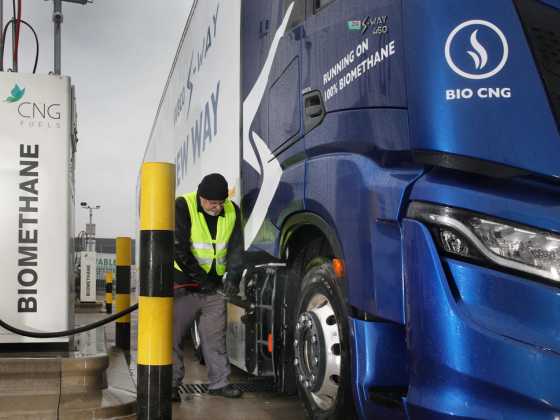Be prepared in wintry weather conditions
As the cold wind blows, temperatures drop, and snow falls, it is vitally important to ensure you, your staff, and your vehicles are properly prepared
 The weather has turned wintry again this week, and many parts of the UK have experienced significant snowfalls, with the East Midlands being particularly badly hit. The North of the region has been particularly badly hit, with Mansfield having in excess of 15 inches (38cms) of lying snow. From a Risk Management perspective it is important that any employers, or general road users for that matter, ensure that all the vehicles operated by, or for any business, are prepared for whatever the winter climate throws at road users. Employers should be particularly aware that they have a legal obligation to give their employees the right tools and the correct advice to deal correctly with the elements.
The weather has turned wintry again this week, and many parts of the UK have experienced significant snowfalls, with the East Midlands being particularly badly hit. The North of the region has been particularly badly hit, with Mansfield having in excess of 15 inches (38cms) of lying snow. From a Risk Management perspective it is important that any employers, or general road users for that matter, ensure that all the vehicles operated by, or for any business, are prepared for whatever the winter climate throws at road users. Employers should be particularly aware that they have a legal obligation to give their employees the right tools and the correct advice to deal correctly with the elements.
The most important thing for companies and individuals to do is to ensure that all vehicles have been taken to the local car dealer, or firms such as Kwik Fit for a FREE winter safety check. By undertaking checks in this manner you can be certain that all the appropriate checks have been undertaken. However, it is essential that companies continue to monitor the vehicle, especially if being used on company business. There are some things which may be easily checked.
Tyres –the tread depth needs to be checked, tyre pressure (you may need the handbook for this bit) and the general condition of the tyre. I recommend that you have no less than 2mm of tread on your tyres, and the condition of the tyres should be checked every month. It is also worth considering a set of winter tyres for the vehicles. The tyre suppliers and manufacturers are now running ‘tyre hotels’ to store winter and summer tyres when not fitted to vehicles. Winter tyres are made of a specific compound and are designed to work at temperatures below 70C; which is variably mid-October to March these days.
Lights – it is essentially that time is taken to check all of the lights on vehicles, with an investment made in a spare bulb set. It is worth remembering that lights are there to ensure the driver is seen, rather than to see where the vehicle is going in most cases. Drivers should check lights every day before driving the vehicle.
Oil –should be checked weekly.
Screen wash - the strength of screen wash should be increased at this time of year in preparation for the drop in temperatures. The more concentrated the screenwash is the less likely it is to freeze in the storage bottle.
Wipers – if wipers are not clearing the screen you are putting yourself and other road users in danger. The worst part is you won’t see the danger coming.
An essential that is often overlooked is to consider is the equipment drivers carry with them in their vehicles. In the boot of any vehicle used on company business at this time of year it is recommended there is:
• A Shovel
• Coats
• Reflective jacket
• Water
• Screen wash
• Jump leads
• Tow strops
• D Links
• Spare bulbs
• Engine oil
• Compressor
• Amber beacons
• Torch
• Boots
• Drinking water
• Biscuits
Here in the UK we have had little snow over recent years, and this has resulted in drivers being unaware of how to drive in these conditions. This means that as a driver you need to give the other drivers a lot more space than normal, even if you have the skill to drive in snow, the other drivers may not.
Many of the things stated may seem like common sense, or over kill. However, road user safety is essential for individuals, and for companies who require their staff to drive in these conditions, and thus it is vital from a legal and moral perspective that staff are able to deal with any contingency.
Article written by Nigel Grainger from Fleet Risk Consultants.
For more information:






